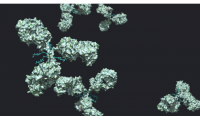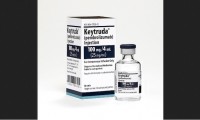-
Novel and emerging therapies offer new hope for patients with inflammatory bowel disease
- Source: drugdu
- 89
- November 9, 2023
-
New UK research institute launched for motor neurone disease
- Source: drugdu
- 92
- November 9, 2023
-
Apellis parries Astellas’ long-term Izervay data with 3-year results on its rival GA med Syfovre
- Source: drugdu
- 110
- November 8, 2023
-
Candel announces promising results for immunotherapy candidate in pancreatic cancer
- Source: drugdu
- 97
- November 8, 2023
-
Daiichi Sankyo, Merck Set to Collaborate on Three DXd Antibody-Drug Conjugates
- Source: drugdu
- 129
- October 27, 2023
-
Mirum’s plans to expand Livmarli’s market get hit as FDA pushes approval date
- Source: drugdu
- 155
- October 20, 2023
-
After launch limitations, Johnson & Johnson exec touts manufacturing progress on CAR-T drug Carvykti
- Source: drugdu
- 108
- October 20, 2023
-
Novo Nordisk to buy KBP’s hypertension drug ocedurenone for up to $1.3bn
- Source: drugdu
- 157
- October 19, 2023
-
FDA establishes new advisory committee to provide expertise on digital health
- Source: drugdu
- 202
- October 18, 2023
-
Merck’s Keytruda receives approval greenlight from EU CHMP
- Source: drugdu
- 170
- October 18, 2023
your submission has already been received.
OK
Subscribe
Please enter a valid Email address!
Submit
The most relevant industry news & insight will be sent to you every two weeks.













